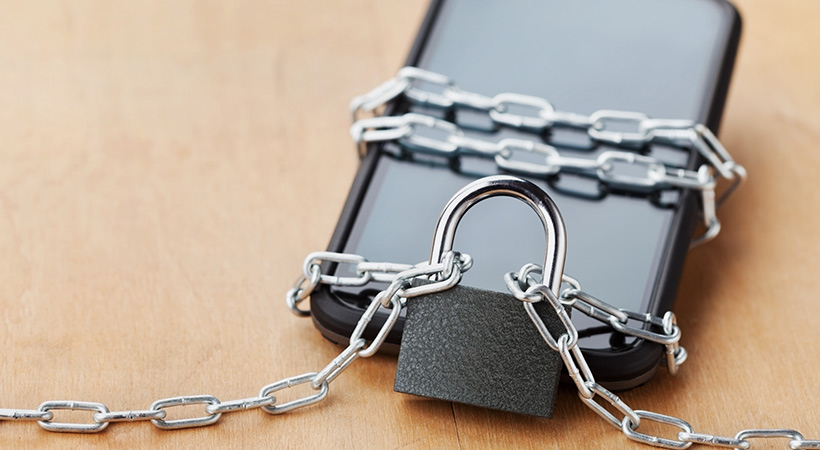Feeling a little overwhelmed and burnt out?
You’re not alone. The demand for government-funded mental health services in Australia was 14.5 per cent higher in September 2020 compared to the previous year. Given everything that’s happened in the past few years, from bushfires to pandemic to recession, it’s no surprise that a lot of Australians are looking for help – more than one in five of us, in fact.
So if you’re struggling to find a ‘new normal’ or you feel like bad habits are getting the better of you, it might be time to do a little mental health reboot. We’ve come up with a few good places to start.
Talk to your doctor and set up a mental health plan
One of the best things you can do for your mental health is to get help from a professional. Your regular doctor can help assess what mental health services could be helpful for your circumstances. They can also work with you to set up a ‘mental health treatment plan’ or ‘mental health care plan’, which can help you manage your mental health year-round. If you’re eligible for Medicare, you can claim up to 10 visits to a mental health professional per calendar year.
For folks experiencing financial hardship or without access to Medicare, some primary health networks across Australia offer Accessible Psychological Interventions (API) that provide counselling services. Chat with your doctor to find out if you can benefit.
And don’t put this off because you think ‘things aren’t that bad’ or ‘other people need it more than I do’. Your mental health is like any other aspect of your health – ongoing maintenance is a much better idea than waiting for a crisis before you get help.
There are also several services you can contact for help with mental health issues (anonymously if you prefer):

Revisit your sexual health plan
While you’re paying a visit to your doctor, why not check in on your sexual health as well? Things might have changed over the past year relating to how often you have sex, who you have sex with, and how you’re protecting yourself against HIV and other STIs. Talk to your doctor and make sure you’re comfortable with your strategy, particularly as there are new ways to use PrEP that may suit you better. Find a sexual health plan that works for you so you can enjoy your sex life with peace of mind.
Start an exercise routine you enjoy
Decades of studies show that physical activity has huge benefits for mental health, including helping to fight depression and anxiety. From boosting the feel-good chemicals in your brain to helping you get a good night’s sleep, exercise is one of the cheapest, easiest and most effective ways to look after your mental health — and it’s available almost any time. The most important thing is to do it. Find a way to exercise that motivates you, whether it’s a run in the park with friends or swimming after work three times a week, and stick to it.
Take a break from the news…
At the moment, even articles about Britney Spears are grim news with political ramifications. Whether it’s climate change, the pandemic or politics, a constant stream of information about the world can leave you feeling more overwhelmed than informed. Stepping outside the news cycle for a week or two can help you recover a little of your own bandwidth and reduce the feeling that everything is terrible and beyond your control. It can also give you more time to refocus on the things you can control in your life — which is a much more productive use of your energy.
Even outside all the controversies with privacy and election interference, social media platforms have earned a bad reputation. Dozens of studies suggest that frequent social media consumption potentially contributes to – or even causes – mental health problems such as depression, anxiety and addiction. If your mental health is already suffering, it can also become a bit of an echo chamber for negative thoughts around comparison, envy and shame even when you know it’s all actually filters and Facetune. Taking a break from the socials (including dating apps) can ease the pressure and help put the online world into perspective — more on this in Wanna get off(line)? It’s time for a digital detox.

Reach out to other people
Spending time with other people can help your mental health in a lot of different ways. Talking about how you’re feeling (or just how your day has been) can alleviate feelings of loneliness and isolation, and staying connected with your mates is an important part of supporting each other. Check in remotely either with a Zoom or even a message to let someone know you’re thinking of them.
Establish a good sleep pattern
Getting enough sleep impacts your energy levels and alertness but it also affects your mental health significantly. In treating people with a medically diagnosed mental illness, studies at the Harvard Medical School found that sleep disorders were not symptoms of mental illness (as previously assumed), but actually part of the cause. According to the results, getting those eight uninterrupted hours of shut-eye can boost your motivation and productivity levels. It’s also critical for memory, learning and emotional resilience. Check out the guide to sleep hygiene for practical tips on cultivating healthy sleep habits.